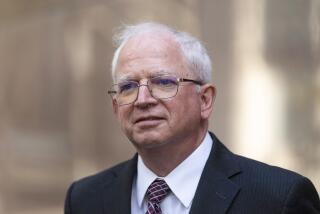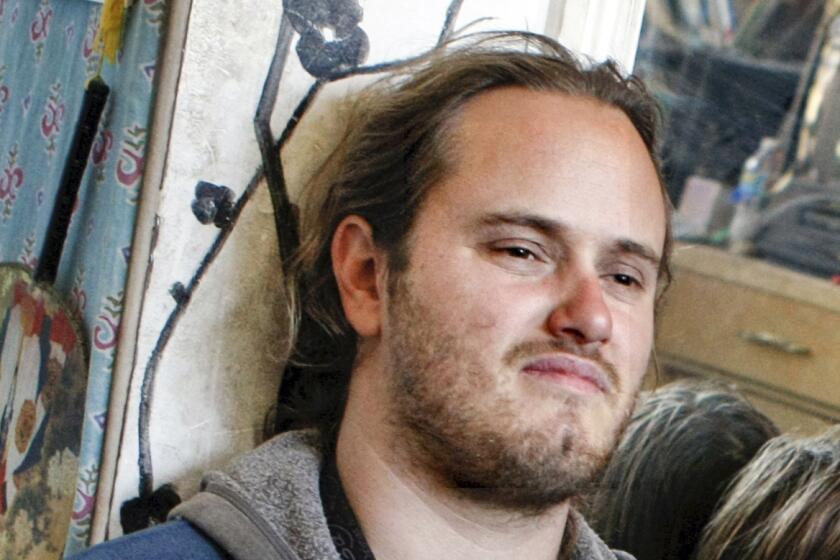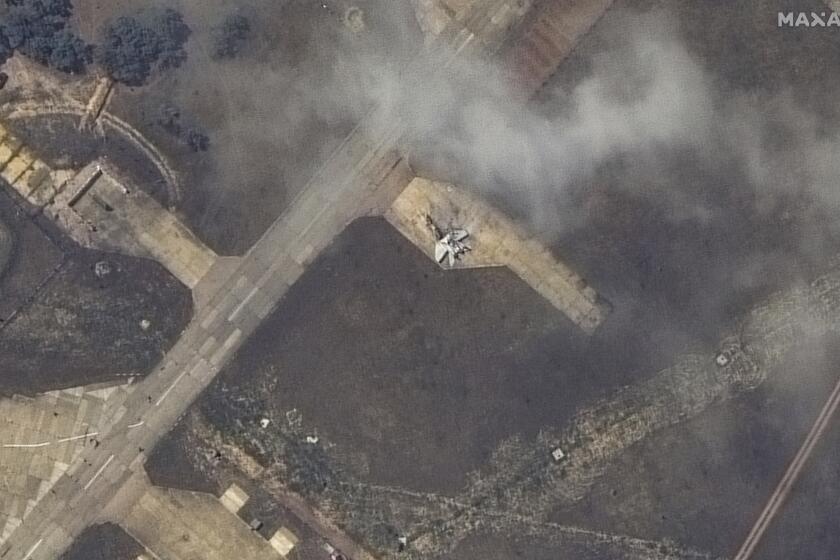Chirac Asks ‘Calm, Reason’ in University Reform Crisis
Premier Jacques Chirac appealed “for calm and reason and responsibility” Sunday in a deteriorating and violent political crisis over proposed university reforms that has hardened the position of French students against their government.
At the same time, Chirac, after a night of violence and looting and burning, stubbornly refused to withdraw the university bill that set off the protests by the students. Despite appeals from some members of his conservative coalition, Chirac was heeding the plea of his most right-wing supporters not to give in to what they called “the pressure of the streets.”
The violence in the Latin Quarter, which lasted from early Saturday evening until a few hours before dawn Sunday, revived ugly images on television for many French people of the riots of May, 1968. Youths could be seen building barricades on the streets, throwing paving stones at the police, setting cars afire and looting shops.
Police said 58 policemen and 22 rioters were injured in the third night of violence. Police added that they arrested 28 people, 18 of them students.
Student leaders insisted that the troublemakers do not belong to their movement, and Chirac, in a speech to his Rally for the Republic party, agreed that, for the most part, that seemed to be true. His minister of interior, Charles Pasqua, identified the unruly youths as “leftists and anarchists of all tendencies and nationalities and those . . . who want to destabilize the republic” and said French police will “not again tolerate” such an outburst.
But TF1, one of the government’s television channels, identified most of the troublemakers as rightists who boasted on camera of their hatred for Communists and immigrants before running down the street smashing cars and shop windows. The television film also showed police doing nothing about the troublemakers even when they stood within easy grasp. One sequence of film showed police allowing some to move through police ranks to regroup on the other side.
Student leaders, some of whom could be seen on television trying to stop the troublemakers, later denounced the police for failing to halt the looting and car burning.
A general assembly of 300 student representatives called on French labor unions to join them in a general strike on Wednesday, and the Communist-dominated General Confedaration agreed immediately. But the other unions, all taking part in a one-hour work stoppage today in mourning for a student who died of a heart attack after being beaten by riot police early Saturday, have not yet decided whether to take part in the general strike Wednesday.
The death of 22-year-old Malik Oussekine has radicalized the student movement, which began the protests almost three weeks ago in a carefree, almost picnic-like mood. It has also shaken the conservative government, which has found its sponsorship of what seemed like a minor bill explode into violence and crisis.
There has been speculation in France about a possible move by President Francois Mitterrand. Mitterrand, cutting short his stay at the European Communities summit conference in London on Saturday, flew back to Paris and called Chirac to the presidential offices at the Elysee Palace for a 35-minute meeting.
A Tense Meeting
Presidential aides said the meeting was tense. A relatively cryptic statement issued by Mitterrand after the meeting said: “National cohesion must come first. I will lay the blame, and the country will back me, on anyone who uses violence.”
Under the presidential-parliamentary constitution of France, Chirac, a conservative, runs the government while Mitterrand, a Socialist, acts as a kind of arbiter with some delaying powers and special authority in defense and foreign policy. But he also is a guardian of the national unity of France and could step into the student controversy on those grounds.
Chirac’s supporters in his Rally for the Republic, a party he founded on the teachings of the late President Charles de Gaulle, were obviously demoralized as they gathered to celebrate their 10th anniversary in an enormous hall.
Talking about the “unjust and painful” death of Oussekine, who was of Algerian origin, and the three nights of violence in Paris, Chirac said: “This situation shocks us, concerns us deeply. . . . We condemn violence, we deplore it, whoever the victims are, because violence solves nothing.”
He blamed the trouble on “young and not-so-young people, helmeted and armed, often from outside the student world.”
‘Seeking Balanced Solutions’
On the issue that precipitated the trouble, the university bill, Chirac said, “We are open to dialogue, we are seeking balanced solutions with those who have something to express--not with irresponsible people, closed to any kind of dialogue.”
But he also made it clear that he will not withdraw the university bill even though it already has been denuded, at least for the time being, of most of the controversial issues that upset the students.
“One cannot say no to change when it is necessary,” the premier said.
But Jean Lecanuet, leader of the Union of the Democracy, the partner of Chirac in his ruling conservative coalition, appeared to urge Chirac to slow down. He said the government “must not cut itself off from the youth, which is the future of the country,” and he blamed the crisis on “the gallop with which the great reforms are being conducted.”
Student leaders have said they will not call off their protests or discuss the issues with the government until the bill is withdrawn altogether. In its original form, the students objected to the bill mainly because it would have allowed universities to set new entry and advancement requirements that the students believe would lessen their chances for a degree in a system that already has a huge dropout rate.
More to Read
Start your day right
Sign up for Essential California for news, features and recommendations from the L.A. Times and beyond in your inbox six days a week.
You may occasionally receive promotional content from the Los Angeles Times.






